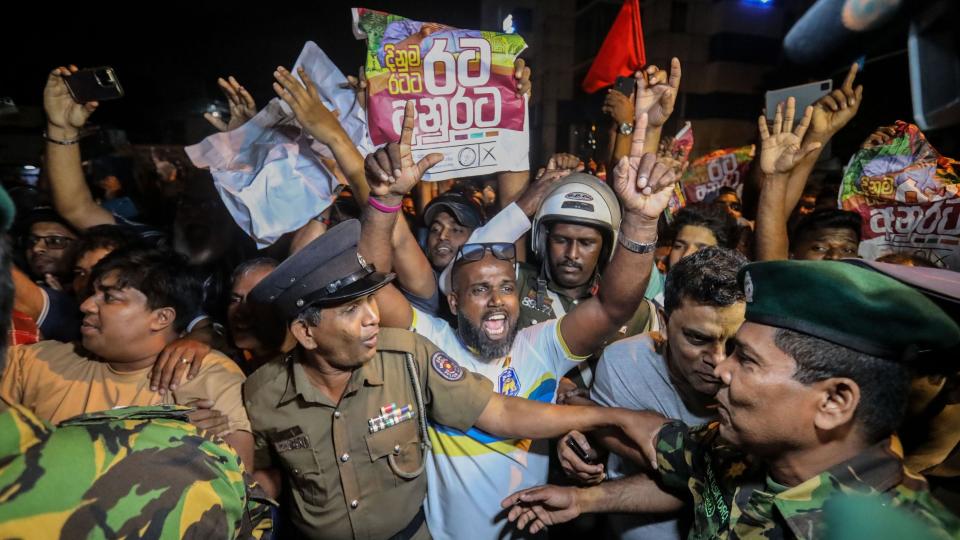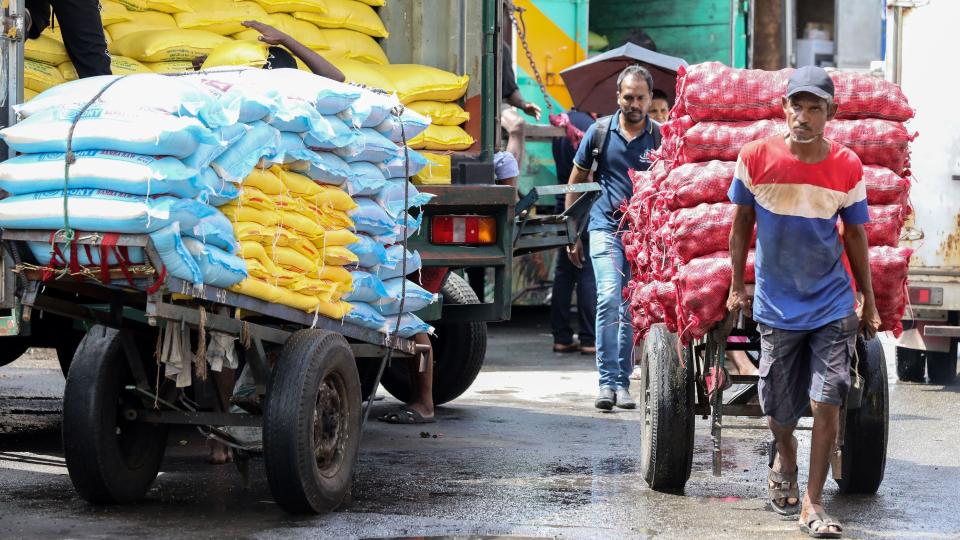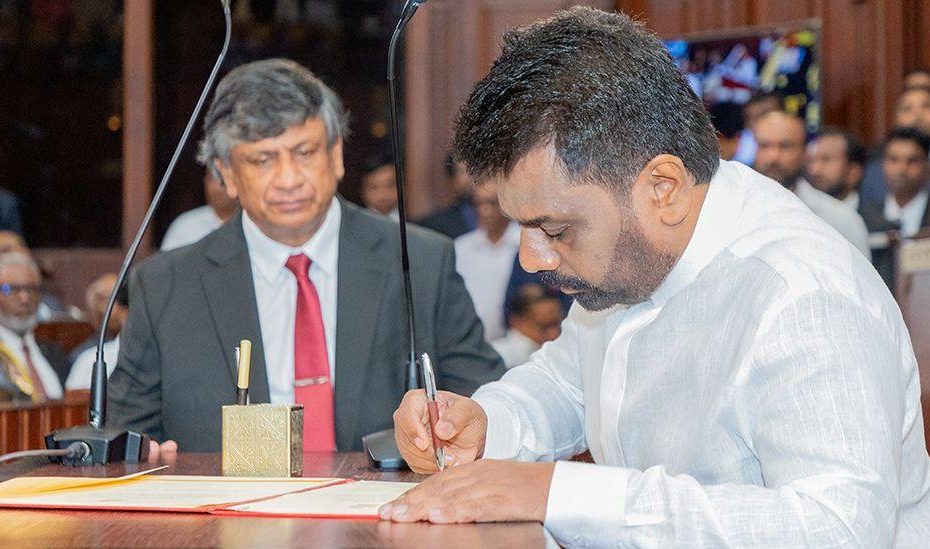Sri Lanka's new president, Anura Kumara Dissanayake, has been sworn in, promising a “clean” policy as the country recovers from its worst economic crisis.
The left-leaning Dissanayake has cast himself as a disruptor of the status quo. Analysts see his victory as a rejection of the corruption and cronyism that have long plagued the country.
Saturday's elections were the first since 2022, when economic discontent sparked mass protests and ousted former President Gotabaya Rajapaksa from power.
“We need to create a new, clean political culture,” he said. “I am committed to achieving this. We will do everything we can to regain people's respect and trust in the political system.”
The 55-year-old, better known as AKD, told Sri Lankans that “democracy does not end with choosing a leader”.
“We must strengthen democracy. I promise to do my utmost to protect democracy,” he said.
“I've said before that I'm not a magician – I'm a regular citizen. There are things I know and things I don't know. My goal is to gather those with the knowledge and skills to help lift this country.”
Dissanayake received a Buddhist blessing at the end of his speech. Representatives of Sri Lanka's other major religions – Islam, Hinduism and Christianity – were also present at the swearing-in ceremony, underscoring the new president's emphasis on diversity.
In a statement on the eve of the ceremony, Dissanayake said that “the unity of Sinhalese, Tamils, Muslims and all Sri Lankans is the basis of this new beginning”.
During the campaign, Dissanayake promised voters good governance and strict measures against corruption.
He has pledged to develop Sri Lanka's manufacturing, agriculture and IT sectors. He has also committed to continuing the deal struck with the International Monetary Fund (IMF) to rescue Sri Lanka from the economic crisis while reducing the impact of austerity measures on the country's poorest people.
Sri Lankan Prime Minister Dinesh Gunawardena resigned before Dissanayake was sworn in, paving the way for the dissolution of parliament.
In an earlier interview with BBC Sinhala, Dissanayake indicated that he would dissolve parliament shortly after his election.
“There is no point in continuing with a parliament that does not correspond to what the people want,” he said at the time.
Dissanayake won after a second round of counting began on Sunday, as no candidate secured more than 50% of the total votes in the first round.
After the votes of the second and third choices for president were counted, the Electoral Commission declared that Dissanayake had won with a total of 5,740,179 votes.
Opposition leader Sajith Premadasa came second with 4,530,902. Outgoing President Ranil Wickremesinghe received 2,299,767 votes in the first round of counting and was excluded from the second round.


Wickremesinghe congratulated his successor and said: “With great love and respect for this beloved nation, I hand over its future to the new president.”
Until this weekend's vote, the winner of all eight presidential elections in Sri Lanka since 1982 had already emerged in the first round of counting, in a poll described as one of the most exciting in the country's history.
Dissanayake's anti-corruption platform resonated with voters who have been calling for systemic change since the crisis.
This enabled him to overcome his fears about the violent past of his political party, the Marxist Janatha Vimukthi Peramuna (JVP), which led two armed uprisings against the Sri Lankan state in the 1970s and 1980s.
Dissanayake's alliance, the National People's Power – of which the JVP is a part – rose to prominence during the 2022 protests known as the Aragalaya – Sinhalese for struggle.
Dissanayake has also tried to moderate his party's far-left stance in recent years.
Economic collapse
The country's new president will have two tasks: to revive the economy and lift millions of people out of crushing poverty.
An economic crisis led to the Aragalaya uprising, which ousted Rajapaksa from the presidential palace in 2022.
At that time, Sri Lanka's foreign exchange reserves had dried up, leaving the country unable to import basic commodities such as fuel. The national debt soared to $83 billion, while inflation soared to 70%.
This made basic necessities such as food and medicine unaffordable for ordinary people.
The country’s economic woes have been blamed on major policy mistakes, weak exports and years of under-taxation, exacerbated by the Covid-19 pandemic, which has devastated tourism, a key economic driver.
Many blame corruption and mismanagement, fueling anger at Rajapaksa and his family, who together ruled Sri Lanka for more than a decade.


“The biggest challenge is how we can rebuild this economy,” Dr Athulasiri Samarakoon, a political scientist at the Open University of Sri Lanka, told the BBC Sinhala Service.
During his term, Wickremesinghe received a $2.9 billion lifeline from the International Monetary Fund (IMF), crucial to opening additional financing channels, but accompanied by tough economic and governance reforms.
Sri Lanka is restructuring the terms of its debt payments with foreign and domestic lenders, as mandated by the IMF. The focus is on the country's $36 billion external debt, of which $7 billion is owed to China, the largest bilateral creditor.
Like Dissanayake, Premadasa also pushed for IT development and the creation of 25 new industrial zones. He said tourism should be supported so that it would become the country's largest source of foreign exchange.
Wickremesinghe said during the campaign that he would double the number of tourists and create a national prosperity fund as well as new economic zones to boost growth.
Additional reporting by BBC Sinhala
![]()

